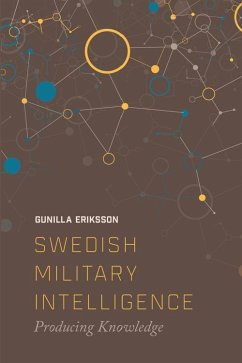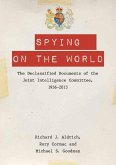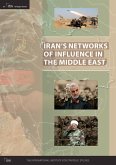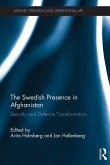Builds a revisionary theoretical framework for researching intelligence knowledge and applies it to the Swedish Military and Security DirectorateGunilla Eriksson revises our perception of intelligence as carefully collected data and objective truth, arguing that there are hidden aspects to intelligence analysis that need to be uncovered and critically examined. This twofold study investigates the character of intelligence knowledge and the social context in which it is produced, using the Swedish Military and Security Directorate (MUST) as a case study. Eriksson argues that there is an implicit framework that continuously influences knowledge production: what kind of data is considered relevant, how this data is interpreted and the specific social and linguistic context of the organisation, surrounded by unarticulated norms and specific procedures. She asks whether these conventions hamper or obstruct intelligence assessments; an essential analysis, given that history has shown us the grave consequences basing policy on intelligence's wrong conclusions.Sources include: The annual Swedish Armed Forces Strategic Intelligence Estimates from 1998-2010Lengthy and highly valuable interviews with the analysts, including managers, working at MUST, giving insights into everyday life at the institution and leading to many important resultsParticipant observation carried out by the author at MUST working meetings and seminars during the production process of the 2010 estimate, and drawing on her experience from her years working as an active analyst
Dieser Download kann aus rechtlichen Gründen nur mit Rechnungsadresse in A, B, BG, CY, CZ, D, DK, EW, E, FIN, F, GR, HR, H, IRL, I, LT, L, LR, M, NL, PL, P, R, S, SLO, SK ausgeliefert werden.
Hinweis: Dieser Artikel kann nur an eine deutsche Lieferadresse ausgeliefert werden.









